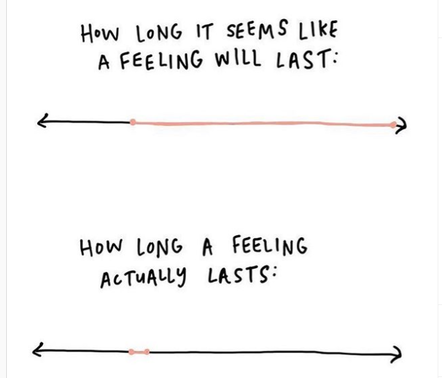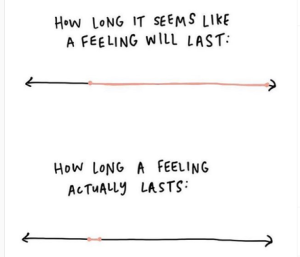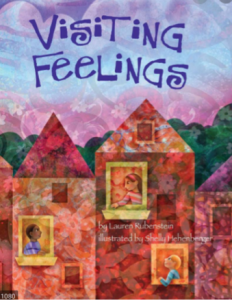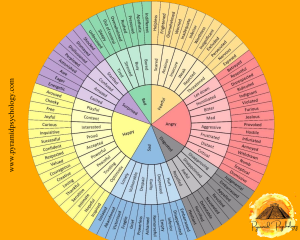Raising Confident Teen Girls: How to Support Their Journey to Self-Worth
As a parent, few experiences are as heart-wrenching as seeing your teen daughter struggle to recognize the amazing qualities that shine so clearly to you. You see her brightness, kindness, and potential, but it can feel like an uphill battle as she grapples with self-doubt or emotional challenges. The more you focus on raising a confident teen girl and supporting her journey to self-worth, the easier navigating friendships, school, and life becomes—but teens (and all of us really!) require guidance to truly take root.
If your daughter is stuck in toxic friendships, constantly overthinking, or feeling paralyzed by the fear of disappointing others, know that these struggles are common. Thankfully, there are ways you can help her uncover her inner strength and build self-worth. Here’s how:
Cultivate Confidence by Acknowledging Her Challenges with Empathy
Many teen girls feel immense pressure to excel academically, socially, and personally. That pressure turns inward, leading to negative self-talk or, in some cases, harmful behaviors like self-harm when they feel overwhelmed. Your teen is likely struggling to know what to do with some of these feelings and unsure how to show herself some understanding and care. Creating a safe, judgment-free space allows her to open up and feel validated, a foundational step in cultivating confidence for teen girls.
>>> FREE DOWNLOAD: Depression & Anxiety Toolkit for Parents Raising Teen Girls <<<
Foster Positive Relationships
Friendships are central to a teen girl’s world, yet not all relationships are created equal. Toxic friendships can zap her confidence leaving her feeling isolated or anxious. Help her start to distinguish between supportive and harmful relationships by discussing what mutual respect, trust, and encouragement look like. Use real-life examples or share shows/movies that you think illustrate some of these qualities. Understanding the importance of boundaries and how to set them is a powerful skills to help her step away from unhealthy connections. Instead, building supportive friendships to significantly boost your teen’s confidence.
Have a look at our Blog on 3 Questions for Parents to Ask About Teen Boundaries.

Photo by Andrea Tummons on Unsplash
Guide Her to Focus on the Present
Teens often get caught in a whirlwind of future-focused worries, whether it’s about upcoming tests, college, or social expectations. These anxieties can overshadow the experiences of the moment. Being future-focused all the time is also disorienting resulting in exhaustion and lack of motivation. Whenever you can introduce a present moment invitation, it’s an investment in her well-being. These can be simple like- when you’re cooking something, calling her over “come smell this”, as your driving in the car together “look at mountains today”, introduce a new song to her “listen to this, I’m curious what you think”, or even asking the question “did you notice….?” can encourage more presence. Encouraging her to celebrate small victories or journal daily gratitudes can also help her reconnect with the present. Learning to anchor herself in the moment is essential for confidence-building.
Model Kindness Toward Yourself to Build Confidence From Within
Your daughter is constantly learning from how you navigate your own challenges. This is no easy task and it’s an ongoing journey. If she sees you celebrating wins, making self-care a priority, and respecting yourself, she will likely replicate those behaviors. Don’t forget to model a little self-compassion in there by showing grace for your mistakes, prioritizing your mental health, and setting boundaries. Explain that treating yourself with kindness is essential—not optional—and it’s a practice that builds confidence from within.
Equip Her with Confidence Coping Tools
I see parents get really good as problem solving. They have tons of ideas and solutions ready to fire off when their teen comes to them. But rather than solving problems for her, you will have a far more positive impact if you empower her to handle challenges independently. Teach practical skills like assertive communication, emotional regulation, and problem-solving. You might ask her “what’s one small step you could take to address this?”, “what’s your gut telling you?”, “what have you tried?”, “what do you think will happen if you try A?”- More questions to develop problem solving questions here. Helping her find her own solutions builds both confidence and resilience, paving the way for long-term emotional strength.
>>> FREE DOWNLOAD: Depression & Anxiety Toolkit for Parents Raising Teen Girls <<<

Photo by sofatutor on Unsplash
Encourage External Support When Needed
Raising confident teen girls, while supporting their journey to self-worth sometimes requires us to seek guidance outside the family. Whether it’s a trusted mentor, school counsellor, professional coach, or mental health therapist, having a neutral third party to turn to can make a profound difference. Reassure her that seeking support is a sign of strength and courage, not weakness.
Discover THP: Helping Teen Girls Confidence Thrive
If your daughter is navigating self-doubt, struggling with friendships, or feeling overwhelmed by life’s demands, the Teen Happiness Pill (THP) program can provide the support she needs. THP is a transformative 6-week program for teen girls (ages 12-18) designed to help them move beyond anxiety and overwhelm into a space of confidence and empowerment. Through engaging activities and community support, THP helps participants:
- Cultivate resilience and self-worth.
- Build positive, healthy friendships.
- Manage stress effectively and reduce overthinking.
- Develop self-compassion and a growth mindset.
This program is available both in-person in YYC and online worldwide, ensuring flexibility and accessibility. With small group sizes, teens receive personalized attention while connecting with peers who understand their struggles. Each week, the program incorporates a unique wellness theme, including a fitness component that helps boost both physical and mental strength.
As a parent, you want to give your daughter every opportunity to thrive. By supporting her participation in THP, you can help her unlock her potential and gain the confidence to navigate life’s challenges with courage and grace.
Learn more about THP and enroll your teen today. Together, let’s help her discover the incredible qualities you’ve always known she possesses.

Photo by Canva Pro
About Me

Chantal Côté, Registered Psychologist & Teen Life Coach
Hi! My name is Chantal.
I am a registered psychologist and teen coach working with teen girls around the globe (and their parents) to help them build Unbreakable Mindsets.
I was born in Ontario and raised in Alberta. As a result of my family encouraging us to speak French growing up (I didn’t always love it as a teen though!), I am bilingual. I love being close to the mountains and am in awe every time I see the beautiful landscapes. One day I might trade my winter jacket in for a bathing suit and a pair of flip flops, but for now Calgary is home.
I look at mental wellness as part of a Whole System. “After food comes mood” and “You’re the average of the five people you spend the most time with” are sayings that make a lot of sense to me. Therefore, when I work with teens, I collaborate with them to get a clear picture of how their lifestyle, experiences, and biological makeup influence how they feel every day. I also believe it is so important to mine for their strengths and resources. Bringing those to life for teen girls, results in them becoming their most resilient and confident selves.
I help teen girls who are struggling with their confidence, are feeling anxious, overwhelmed, or shut down a lot of the time, and want things to be different. Most certainly the struggle is affecting their self-image, their relationships, and so importantly their mental wellness.
Over the years, I have given myself permission to explore my creative side. I’m also drawn to physical fitness and sport and feel so at home in nature. I work really well with teens who have some creative connections (whether that’s drawing, painting, writing, acting, fashion, playing and making music, etc.). I also get the world of sport and connect well with teens who have an athletic side.
This Article: “Raising Confident Teen Girls: How to Support Their Journey to Self-Worth” was written by: CHANTAL | Pyramid Psychology





















































 you’re not sure how you’re feeling, using a ‘feeling wheel’ can help you identify your emotions. You can read an article on the benefits of a feeling wheel
you’re not sure how you’re feeling, using a ‘feeling wheel’ can help you identify your emotions. You can read an article on the benefits of a feeling wheel  Tip for Dealing with Change #4 – Celebrate Wins:
Tip for Dealing with Change #4 – Celebrate Wins:




















